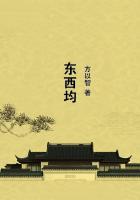But the hind has no participation in property, nothing to hope from the fertility of the toil or the propitiousness of the season; he plants not for his children; he entrusts not to the ground the labour of his young years, to reap the fruit of it, with interest, in his old age. He lives each week on the wages of the last. Ever exposed to the want of work by derangements in his master's fortune; ever ready to feel the extremes of want, from sickness, accident, or even the approaches of old age, he runs all the risks of ruin without enjoying any of the chances of fortune. Economy in his situation is scarcely probable; but though he should succeed in collecting a little capital, the suppression of all intermediate ranks hinders him from putting it to use. The distance between his lot and that of an extensive farmer, is too great for being passed over; whereas, in the system of cultivation on the small scale, a labourer may succeed, by his little economy, in acquiring a small farm or a small metairie; from this he may pass to a greater, and from that to every thing. The same causes have suppressed all the intermediate stages in other departments of industry. A gulf lies between the day-labourer and every enterprise of manufacture or trade, as well as farming; and the lower classes have now lost that help which sustained them in a former period of civilization. Parish aids, which are secured to the day-labourer, increase his dependence. In such a state of suffering and disquietude, it is not easy to preserve the feeling of human dignity, or the love of *******; and thus at the highest point of modern civilization, the system of agriculture approximates to that of those corrupt periods of ancient civilization, when the whole labour of the field was performed by slaves.
The state of Ireland, and the convulsions to which that unhappy country is continually exposed, show clearly enough how important it is for the repose and security of the rich themselves, that the agricultural class, which forms the great majority of a nation, should enjoy conveniences, hope, and happiness. The Irish peasants are ready to revolt, and plunge their country into the horrors of civil war; they live each in a miserable hut, on the produce of a few beds of potatoes, and the milk of a cow; more unhappy, at the present day, than the cottagers of England, though possessing a small property, of which the latter are destitute. In return for their allotted portion of ground, they merely engage to work by the day, at a fixed wage, on the farm where they live; but their competition with each other has forced them to be satisfied with a wage of the lowest possible kind. A similar competition will act likewise against the English cottagers. There is no equality of strength between the day-labourer, who is starving, and the farmer, who does not even lose the revenue of his ground, by suppressing some of his habitual operations; and hence the result of such a struggle between the two classes, is constantly a sacrifice of the class which is poorer, more numerous, and better entitled to the protection of law.
Rich proprietors generally find that for themselves large farms are more advantageous than small ones. The small farmer rarely employs a capital sufficient even for his little cultivation; himself is always so near to ruin, that he must begin by ruining the ground. And certainly, in counties where the different systems of cultivation are practically set in opposition to each other, it is granted that land is ruined by letting it on lease, and reimproved by cultivating it with servants or metayers. It is not, therefore, small farms, but metairies, which ought to be compared with large farms.
Cultivation on the great scale, spares much time which is lost in the other way; it causes a greater mass of work to be performed in the same time, by a given number of men; it tends, above all, to procure from the employment of great capitals the profit formerly procured from the employment of numerous workmen; it introduces the use of expensive instruments, which abridge and facilitate the labour of man. It invents machines, in which the wind, the fall of water, the expansion of steam, are substituted for the power of limbs; it makes animals execute the work formerly executed by men. It hunts the latter from trade to trade, and concludes by rendering their existence useless. Any saving of human strength is a prodigious advantage, in a colony, where the supernumerary population may always be advantageously employed. Humanity justly solicits the employment of machines to aid the labour of the negroes, who cannot perform what is required of them, and who used to be incessantly recruited by an infamous commerce. But in a country where population is already too abundant, the dismissal of more than half the field-labourers is a serious misfortune, particularly at a time when a similar improvement in machinery causes the dismissal of more than half the manufacturing population of towns. The nation is nothing else but the union of all the individuals who compose it, and the progress of its wealth is illusory, when obtained at the price of general wretchedness and morality.
Whilst, in England, the peasantry are hastening to destruction, their condition is improving in France; they are gathering strength, and without abandoning manual labour, they enjoy a kind of affluence; they unfold their minds, and adopt, though slowly, the discoveries of science. But in France, the peasants are mostly proprietors: the number of those who cultivate their own lands prodigiously increased in the revolution; and to this cause must be attributed the rapid progress which agriculture is ****** in that country, in spite of a long war and heavy contributions. Perhaps England might partly obtain a similar advantage, if these vast commons were shared among her cottagers, to whom the charm of property would thus be restored.












